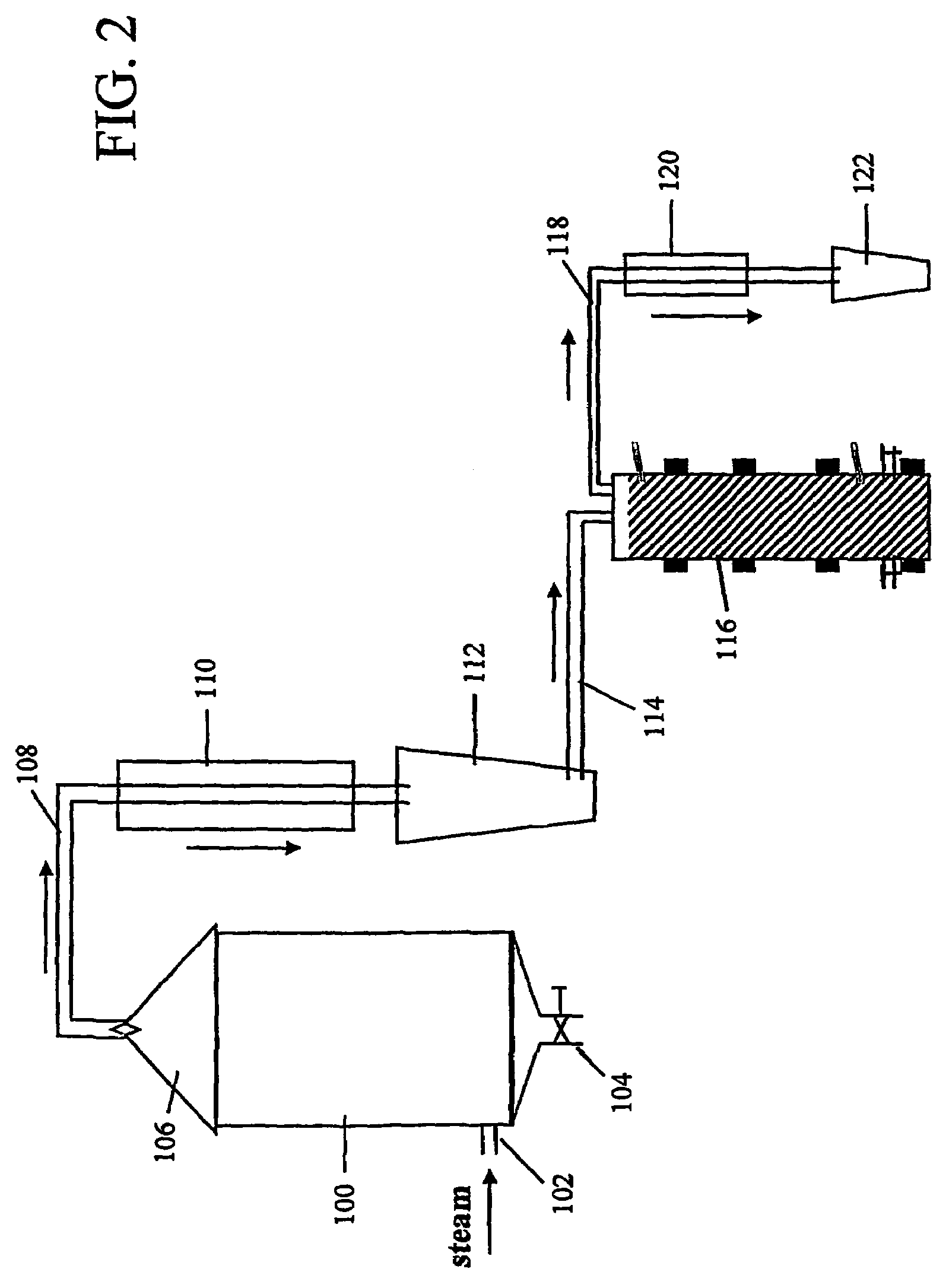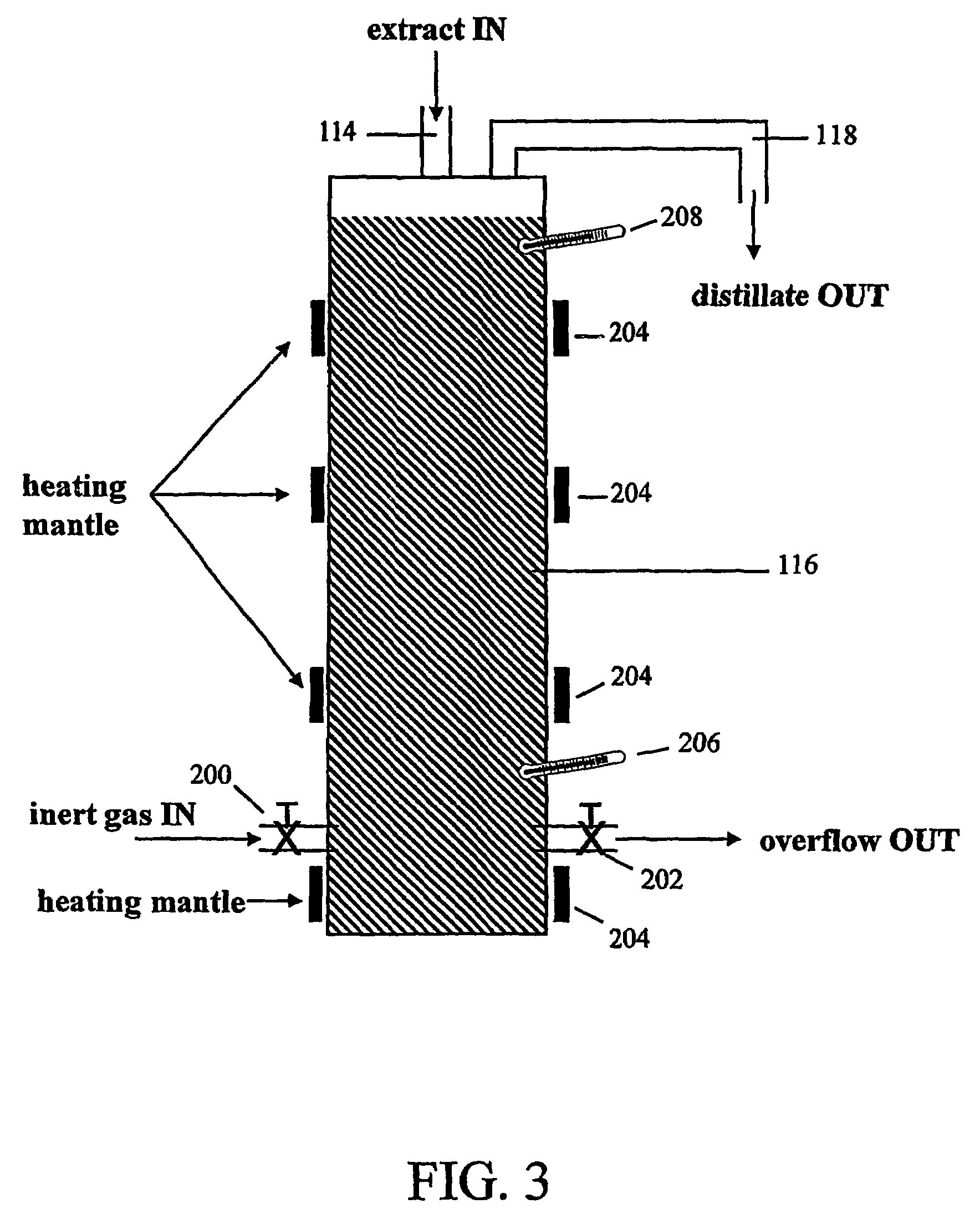Pesticidal compositions from prunus
a technology of pesticides and compositions, applied in biocide, instruments, peptides, etc., can solve the problems of reducing the survival, vigor, yield, and crop losses of ornamental plants, so as to reduce the value of ornamental plants, reduce the survival, vigor, and yield
- Summary
- Abstract
- Description
- Claims
- Application Information
AI Technical Summary
Benefits of technology
Problems solved by technology
Method used
Image
Examples
example 1
Analysis of Prunus Compositions
[0030]Samples of Prunus biomass were macerated, either filtered or hydrodistilled, and analyzed by gas chromatography (GC). Sample analysis was performed using an HP5890 Series II (Agilent Technologies, Palo Alto, Calif.) gas chromatograph equipped with a flame ionization detector (FID). Solid-phase micro-extraction (SPME, Supelco, Bellefonte, Pa.) was used to sample the headspace over the Prunus compositions or was immersed in the hydrodistillate. Concentrated extracts were analyzed by direct injection into the GC. The separation of constituents was accomplished with a 30 m, 0.25 mm ID, 0.25 μm film, fused silica capillary column coated with polyethylene glycol (Supelcowax™ 10, Supelco). Splitless injection at 240° C. was used for SPME headspace analysis. Concentrated extracts (1 μL) were injected in split mode (split 100:1 at 220° C.). Oven temperature was programmed as follows: 2 min. at 40° C.; increased to 180° C. at 6° C. / min; 180° C. for 8 min. ...
example 2
Control of Phylloxera in Grapes
[0033]A grape vineyard, highly infested with Phylloxera and exhibiting a gradient of disease symptoms, was chosen for an evaluation of Prunus compositions to control damage to grapes by the soil-borne insect and its associated fungal complex. The field plot design was a complete randomized block, with three plants per treatment, four treatments per block, replicated four times. The four treatments were as follows: Treatment 1:200 mL Prunus virginiana hydrodistillate (collected in vessel 112 as shown in FIG. 2 and having the analysis of the first entry of Table 1), Treatment 2: 100 mL Prunus virginiana hydrodistillate, Treatment 3: 100 mL Prunus virginiana hydrodistillate plus 100 mL mint extract, Treatment 4: 100 mL water as control.
[0034]The treatments were applied by using a soil probe to open one-inch holes in the soil, 8 inches deep. Six holes were opened in a circle around each treated vine, at approximately two feet from the trunk. The treatments...
example 3
Control of Cytospora
[0040]The air-borne fungus Cytospora sp. causes cankers on various tree crops and ornamentals (see, for example, Spotts et al., “Incidence and Control of Cytospora Canker and Bacterial Canker in a Young Sweet Cherry Orchard in Oregon,”Plant Disease, August 1990, 577–591). Cytospora cincta is one of the most common canker diseases of cherry (Prunus avium L.). Cytospora leucostoma causes cankers on peach trees, and C. chrysosperma causes canker disease in cottonwood trees.
[0041]The effectiveness of Prunus compositions was compared to the effectiveness of synthetic benzaldehyde in stopping or restricting the growth of the Cytospora fungus on potato dextrose agar. The volatile compounds of a Prunus virginiana hydrodistillate were concentrated by counter-flow flash evaporation (i.e. collected from vessel 122 as shown in FIG. 2) to provide a concentrated extract that was further processed by distillation to remove hydrocyanic acid. The resulting extract was analyzed an...
PUM
| Property | Measurement | Unit |
|---|---|---|
| time | aaaaa | aaaaa |
| time | aaaaa | aaaaa |
| time | aaaaa | aaaaa |
Abstract
Description
Claims
Application Information
 Login to View More
Login to View More - R&D
- Intellectual Property
- Life Sciences
- Materials
- Tech Scout
- Unparalleled Data Quality
- Higher Quality Content
- 60% Fewer Hallucinations
Browse by: Latest US Patents, China's latest patents, Technical Efficacy Thesaurus, Application Domain, Technology Topic, Popular Technical Reports.
© 2025 PatSnap. All rights reserved.Legal|Privacy policy|Modern Slavery Act Transparency Statement|Sitemap|About US| Contact US: help@patsnap.com



